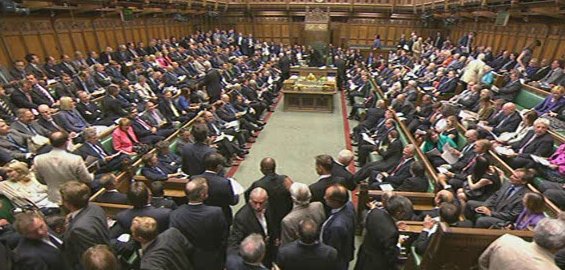- 29/08/2013
- Posted by: Valerie Vaz MP
- Category: News

On Thursday 29 August 2013 Parliament was recalled to debate the use of chemical weapons in Syria.
Valerie said:
“I voted against the Government’s motion on Syria. Together with other colleagues, the Government’s motion was defeated by 285 votes to 272 votes. In my view we should wait for evidence from the UN Inspectors and obtain a mandate from the international community before there are any military strikes.”
“I voted in favour of the Opposition’s amendment to the Government’s motion. However this was defeated by 332 votes to 220 votes. The text of the Opposition’s amendment tabled in the name of Edward Miliband Leader of the Opposition and others is set out below.”
Edward Miliband
Douglas Alexander
Angus Robertson
Elfyn Llwyd
Jim Murphy
Rosie Winterton
Delete all after “This House” and insert:
“expresses its revulsion at the killing of hundreds of civilians in Ghutah, Syria on 21 August 2013; believes that this was a moral outrage; recalls the importance of upholding the worldwide prohibition on the use of chemical weapons; makes clear that the use of chemical weapons is a grave breach of international law; agrees with the UN Secretary General that the UN weapons inspectors must be able to report to the UN Security Council and that the Security Council must live up to its responsibilities to protect civilians; supports steps to provide humanitarian protection to the people of Syria but will only support military action involving UK forces if and when the following conditions have been met that:
1. the UN weapons inspectors, upon the conclusion of their mission in the Eastern Ghutah, are given the necessary opportunity to make a report to the Security Council on the evidence and their findings, and confirmation by them that chemical weapons have been used in Syria;
2. compelling evidence is produced that the Syrian regime was responsible for the use of these weapons;
3. the UN Security Council has considered and voted on this matter in the light of the reports of the weapons inspectors and the evidence submitted;
4. there is a clear legal basis in international law for taking collective military action to protect the Syrian people on humanitarian grounds;
5. such action must have regard to the potential consequences in the region, and must therefore be legal, proportionate, time-limited and have precise and achievable objectives designed to deter the future use of prohibited chemical weapons in Syria; and
6. the Prime Minister reports further to the House on the achievement of these conditions so that the House can vote on UK participation in such action, and that any such vote should relate solely to efforts to deter the use of chemical weapons and does not sanction any wider action in Syria.”

